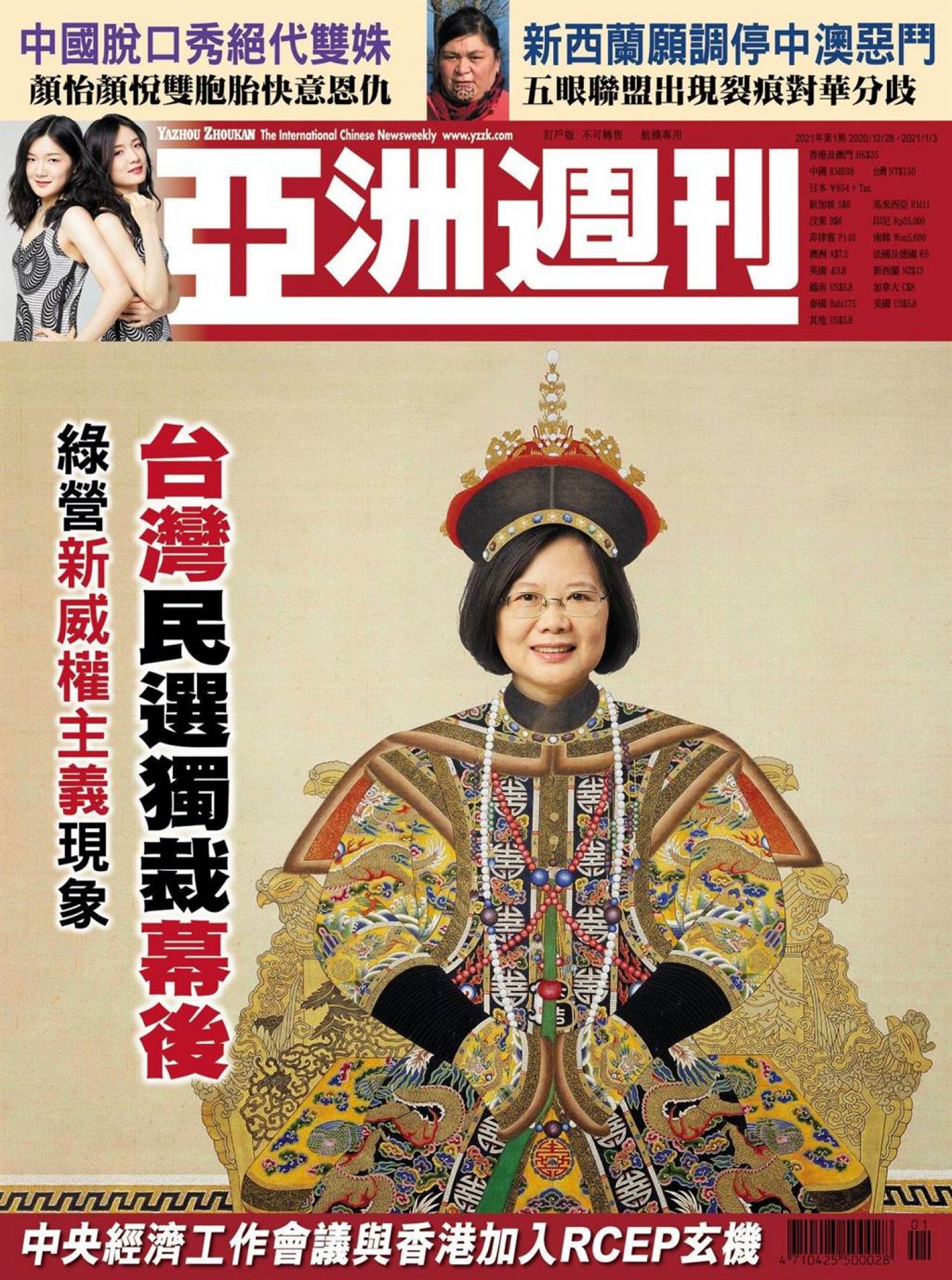
Portrayal of Tsai as Elected Dictator Not Ungrounded
By Liu Hsin-yueh
China Times, December 25, 2020
The Ministry of Culture stipulated that effective February 1, 2021, publishers in Taiwan must apply for prior MOC approval before they publish books authorized by mainland China and converted from simplified and traditional Chinese script. Only then can the publishers obtain an identification number from the National Library Book Number Center and be eligible for tax exemption status. Effectively, Taiwan will retrogress to a bygone era of publication censorship.
From the middle of December on, the MOC requested that Taiwanese publishers ban the publication and removal of the mainland Chinese children’s picture book entitled Waiting for Dad to Go Home with the theme of fighting the coronavirus (COVID-19) pandemic. This can already be seen as the DPP administration’s decision to meddle in cultural affairs.
The Publication Act was repealed back in 1999, and the Government Information Office (GIO), Executive Yuan, back then announced that mainland Chinese publications no longer had to be submitted for official review. The said MOC stipulation is to mug the freedom of the press in Taiwan.
The Democratic Progressive Party (DPP) administration can search for provisions in the Act Governing Cross-Strait Relations today to block publications from the mainland, and someday it can also control the contents of publications they do not like according to other laws, such as criticizing the administration of President Tsai Ing-wen, opposing government policies, etc. As long as the DPP administration is not happy, it can order you not to publish, and that means not to publish. If no suitable provisions can be found in existing laws to control publications. Don't worry, the DPP has a majority voting bloc in the Legislative Yuan, and the ruling party can make any law that it desires.
On the other hand, DPP Legislator Fan Yun "reported" that Airiti Library, which developed and owned the theses and dissertations database, has mainland Chinese capital investment. She said Airiti was also suspected of cooperating with China in political censorship, arbitrarily altering the content of academic works, and dwarfing Taiwan’s statehood. The Ministry of Education (MOE) has determined that the Airtiri had the likelihood of violating the Copyright Act and the Act Governing Cross-Strait Relations, and the MOE will host an inter-ministerial meeting to discuss the issue of Ariti’s contract with its mainland counterpart. The said DPP activist added if the “offence is serious enough,” the MOE may request universities and academic institutions not to cooperate with Airiti.
In the current political climate, cross-strait interactions are planted with mines everywhere. For the benefit of Taiwanese publishers, the government is to play the role of a trouble-shooter and opportunity creator rather than a trouble-maker trying to catch someone if it can, awakening reminiscent of horrible stories involving Garrison Command during martial law period.
The latest issue of the Yazhou Zhoukan, also known as Asia Weekly, featured a cover story on the "elected dictatorship" in Taiwan where the reinstatement of the Publication Act and the government's intimidation of academic platform is a clear demonstration of the Tsai administration’s new authoritarian rule. Here comes the martial law of the mind. A chilling effect is re-emerging.
From: https://www.chinatimes.com/opinion/20201225005163-262105